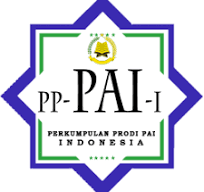EFEKTIVITAS PEMBELAJARAN DARING DALAM PEMBELAJARAN FIKIH DI KELAS III MIN I PASURUAN DESA GUNUNG GANGSIR KECAMATAN BEJI KABUPATEN PASURUAN
DOI:
https://doi.org/10.54069/attaqwa.v18i1.214Keywords:
Effectiveness, learning, online, fiqh, MINAbstract
The Covid-19 pandemic which became a global pandemic in the early March 2020 forced the world to lock down as an effort to prevent the spread of the virus. In Indonesia, PSBB is applied for all activities outside home until the pandemic subsides. Specifically, related to education, the government issues policies so that learning is carried out online. MIN 1 Pasuruan is one of the educational institutions under the auspices of the Ministry of Religion that implements online learning. Online learning is a new thing, which creates problems and obstacles for parents, students, teachers and schools, so they are interested to be researched about its effectiveness in learning. This study aims to describe the effectiveness of online learning in Fiqh learning in Class III A MIN 1 Pasuruan, Gunung Gangsir Village, Beji District, Pasuruan Regency. The data sources in this study consisted of primary sources in the form of school principal data, while secondary data in the form of results from observations, interviews, and documentation activities at MIN 1 Pasuruan. Data collection techniques in this study used the methods of observation, interviews, and documentation. The data analysis technique in this study used the Miles and Huberman analysis method so that it could be seen the effectiveness of online learning in Fiqh learning in Class III A MIN 1 Pasuruan. The results showed that online learning for Fiqh learning in Class III/A MIN 1 Pasuruan, Gunung Gangsir Village, Beji District, Pasuruan Regency was less effective.
Downloads
References
Afifuddin dan Beni Ahmad Saebani. 2012. Metodologi Penelitian Kualitatif. Bandung: CV Pustaka Setia.
CD KTSP Kerja sama Dinas Pendidikan Nasional dan Departemen Agama RI, 2007
Depag RI. Standar Isi Madrasah Ibtidaiyah. Jakarta: Dirjen Pembinaan Kelembagaan Agama Islam. 2006.
Depdiknas.2006. Permendiknas No 22 Tahun 2006 Tentang Standar Isi. Jakarta: Depdiknas.
Darajat, Zakiah. 1976. Pendidikan Agama dalam Pembinaan Mental, (Jakarta: Bulan Bintang.
Hasan, M. Iqbal. 2002. Pokok-Pokok Materi Metodologi Penelitian dan Aplikasinya. Jakarta: Ghalia Indonesia.
Moleong, Lexy J. 2014. Metodologi Penelitian Kualitatif. Bandung: PT Remaja Rodaskarya offset
Undang-Undang No. 20 Tahun 2003 tentang Sistem Pendidikan Nasional
Peraturan Menteri Agama Republik Indonesia No. 2 Tahun 2008, Tentang Standar Kompetensi Lulusan Dan Standar Isi Pendidikan Agama Islam Dan Bahasa Arab di Madrasah, hlm. 20
Pangondian, Roman A. 2019. Faktor-Faktor Yang Mempengaruhi Kesuksesan Pembelajaran Daring Dalam Revolusi Industri 4.0. Seminar Nasional Teknologi Komputer & Sains (SAINTEKS). 57
Prastowo, Andi. 2012. Metode Penelitian Penelitian Kualitatif Dalam Persektif Rancangan Penelitian. Jogjakarta : Ar-ruzzmedia.
Sutopo. 2006. Metodologi Penelitian Kualitatif. Surakarta: UNS.
Syarifudin, Albitar S. 2020. Implementasi Pembelajaran Daring Untuk Meningkatkan Mutu Pendidikan Sebagai Dampak Diterapkannya Social Distancing. Jurnal Pendidikan Bahasa dan Sastra Indonesia. 31-33
Sobron A.N, B. R. 2019. Persepsi Siswa dalam Studi Pengaruh Daring Learning terhadap Minat Belajar IPA. Pendidikan Islam dan Multikulturalisme.
Susanto, A. 2013. Teori Belajar dan Pembelajaran di SD. Jakarta: Kencana Prenada Media
Sugiyono. 2015. Metode Penelitian Kombinasi (Mix Methods). Bandung: Alfabeta.
Downloads
Published
How to Cite
Issue
Section
License
Copyright (c) 2022 Nanang Rokman Saleh Saleh, Muhammad Syaikhon, Machmudah Machmudah

This work is licensed under a Creative Commons Attribution-NonCommercial 4.0 International License.





